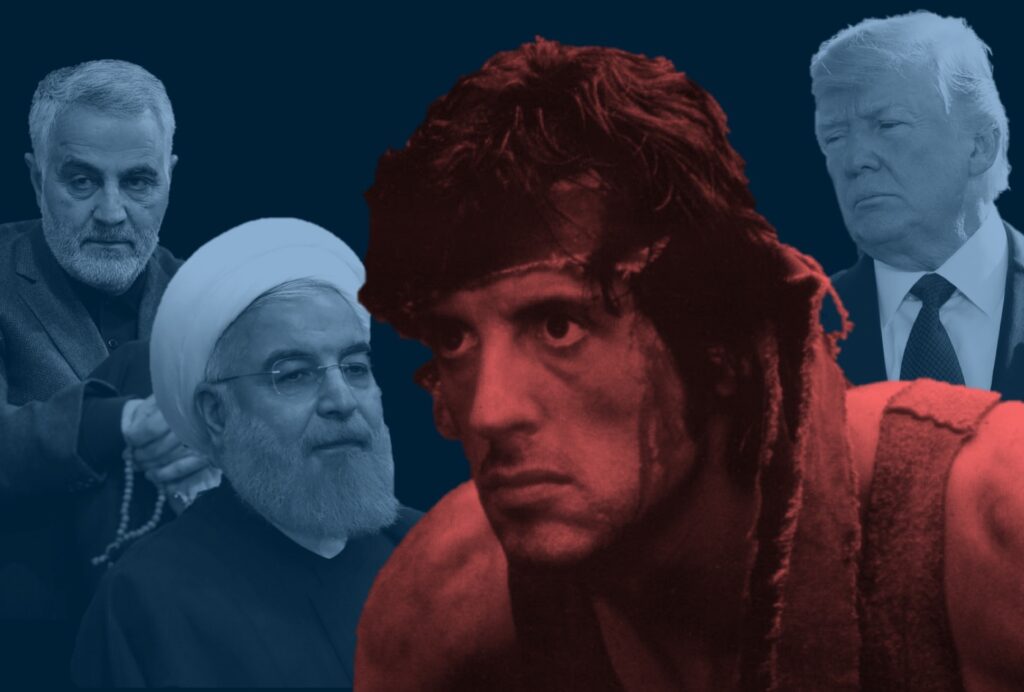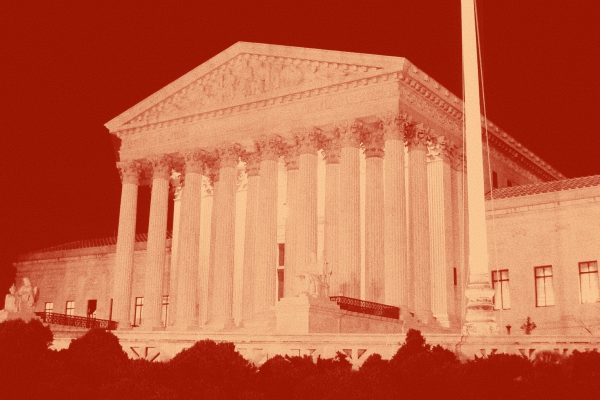Last week, after ordering the assassination of General Qasem Soleimani—who was, according to the Guardian, “widely seen as the second most powerful figure in Iran,” behind Supreme Leader Ayatollah Ali Khamenei—President Trump warned Iran not to retaliate. Writing on Twitter, he said that the United States would respond in turn by attacking fifty-two Iranian sites, some “at a very high level & important to Iran & the Iranian culture.”
Others have rightly noted that the destruction of sites of cultural but not military importance is a war crime. But why, specifically, fifty-two sites, and what does it tell us about Trump’s aims in this self-created crisis?
Fifty-two is a powerful number in this context.
It may have stuck in Trump’s mind because there are currently 5,200 U.S. troops in neighboring Iraq. (Responding to current events, the Iraqi parliament met in an emergency session on Sunday and voted to expel all U.S. troops from the country.) Or perhaps the number resonates because of the B-52s that would likely deliver the threatened bombs to those fifty-two sites in Iran.
Trump’s desire to Stallonize himself is not merely a matter of personal vanity; it is a fundamental part of the Republican Party’s cultural politics.
But Trump invited yet another interpretation when he tweeted in his “WARNING” that the fifty-two targets represent the fifty-two Americans who were taken hostage in Iran in 1979 and held for over a year, after the fall of the brutal U.S.-backed Shah of Iran. Linking the 2020 assassination of Soleimani to the Iran hostage crisis would seem to make little sense. It casts the assassination of Soleimani as retributive payback for a past wrong, even though the Trump administration tries to insist it was an act of deterrence rather than aggression—a preventative measure, aimed at stopping attacks it claims were “imminent.”
The explanation may lie instead in a fantasy of poetic justice: the link positions Trump as Rambo, the Vietnam veteran and symbol of masculinity played by Sylvester Stallone, who avenges American humiliation. In the second film of the multimillion-dollar film franchise—Rambo: First Blood Part II (1985)—Rambo “launches a bloody rescue mission in Southeast Asia for U.S. servicemen missing in action from the Vietnam War.” Nearly four decades after the first Rambo film was released, Trump seeks the same sort of redemption of the nation. It is no coincidence that he has recently disseminated on Twitter a doctored image of himself as another of Stallone’s characters, the fictional boxing hero Rocky Balboa (about whom Muhammad Ali said: “America has to have its white images”).
Trump was much mocked for this fantasy. But it is worth noting that the desire to Stallonize himself is not merely a matter of personal vanity; it is a fundamental part of the Republican Party’s cultural politics. “Rambo was always a product of Republican policy,” Scott Tafoya noted in a review this fall of the most recent Rambo film, Rambo: Last Blood. In fact, when Ronald Reagan saw First Blood Part II while he was in office, he said, “Boy, after seeing ‘Rambo’ last night, I know what to do the next time this happens”—meaning the next time American citizens are taken hostage. (The remark was inadvertently picked up by microphones intended for an Oval Office speech.) At the time, writing in the Christian journal Transformation, Jay Kesler said, “I fear the United States is on the verge of saying ‘Give us Rambo!’ We would rather have him than Jesus Christ. He is offering so much more of what our national psyche craves.”
So, too, is Trump.
It is telling that Trump has not criticized Reagan since becoming president. He has gone after the Bushes, but he has only praised Reagan, aligning himself with the president admired most by the Republican Party. In 1987, however, while promoting his book The Art of the Deal, Trump took the advice of the notorious conservative strategist Roger Stone and accused Reagan of being weak on the Soviet Union (two years before the Berlin Wall came down). In full-page ads in the nation’s major newspapers, Trump declared: “There’s nothing wrong with America’s Foreign Defense Policy that a little backbone can’t cure.”
Fifty-two signifies Trump’s return to this old script of emasculation, first penned for him over thirty years ago by Stone. But the script is riskier now than it was then because most of the offenses for which Trump has now been impeached were likely committed then by the Reagan campaign. As Charlie Pierce writes in Esquire this week:
The Reagan campaign worked covertly to keep the hostages from being released before the 1980 election. When it finally occurred, on the day that Ronald Reagan was inaugurated in 1981, we were told it was because the Iranians were afraid of the newly elected Marlboro Man in the White House, instead of the fact that sub rosa promises had been made regarding arms sales and the return of frozen Iranian assets.
None of this was known in 1981, and much of it is still debated now (the allegations were investigated by both houses of Congress and found to be lacking supporting evidence). But the case was made persuasively in 1991 in a book by former U.S. National Security Council member Gary Sick, October Surprise: American Hostages in Iran and the Election of Ronald Reagan, and an episode of PBS’s Frontline.
The mere mention of the number fifty-two opens this can of worms, building an identity between Trump and Reagan that all but confesses to crimes both men have been accused of. But at the same time, it helps further Trump’s takeover of the Republican Party as he makes clear he is coming for its idol. Manliness is only ever as powerful as the next alpha male, and fifty-two is a throwdown. It signals Trump is more Rambo than Reagan. Who will be the bigger man—the B-movie star or the reality TV personality?
The number fifty-two signals Trump is more Rambo than Reagan. Who will be the bigger man—the B-movie star or the reality TV personality?
The answer may not be decided on TV—it may be decided on Twitter, or even on a battlefield—but television is certainly part of the story. In 1979 ABC launched a new show specifically to cover the hostage crisis. Hosted by Ted Koppel, The Iran Crisis: America Held Hostage had quite a challenge to overcome since its subject was “a crisis in which,” as Charlie Pierce puts it, “almost nothing ever happened.” Until then, that was the preserve of soap operas, to depict almost nothing ever happening. But with American hostages held abroad, the nation was feminized, and so too was its newest television news show: reporting nightly on the scene of Americans’ humiliation abroad, Koppel adopted the slow seriality of soaps and their sexualized politics of power. The show, later renamed Nightline, appeared on ABC for more than thirty-five years—not quite besting the fifty-seven-year record run of the soap opera The Guiding Light, but certainly giving it a run for its money.
The sexualized politics of power and the slow time of seriality are the keys to Stallone’s film success. Responding to criticism, he once admitted that he is “constantly making sequels” but quipped, “Isn’t a famous TV show just sequels? You watch the same damn show for ten years, but you should only make a good film once?” With the number fifty-two, Trump the TV personality follows Stallone’s lead: the decades-old conflict between the United States and Iran is now serial TV. Only this week we were promised a spinoff, when it was announced that Donald Trump, Jr., and Ivanka Trump are among the top 2024 picks for Republican voters.
Fortunately, television shows are often cancelled—some even in their very first season.







